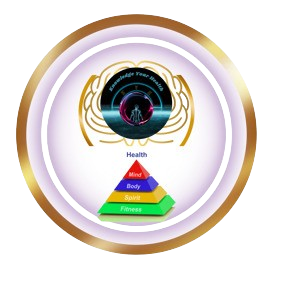Vitamin B12 (Cobalamin) Overview
Vitamin B12, also known as cobalamin, is a water-soluble vitamin that plays a crucial role in various bodily functions. It is a part of the B-vitamin family and is essential for maintaining overall health and well-being. Vitamin B12 is particularly important for DNA synthesis, red blood cell formation, nerve function, and the metabolism of proteins and fats.
Health Benefits of Vitamin B12
1. Red Blood Cell Formation: Vitamin B12 is essential for the production of red blood cells, which carry oxygen from the lungs to the rest of the body. Adequate B12 levels help prevent anaemia and maintain overall energy levels.
2. Nerve Function: Cobalamin plays a crucial role in maintaining the health of nerve cells and supporting proper nerve function. It helps produce the myelin sheath, a protective layer that surrounds and insulates nerve fibers, ensuring efficient nerve signal transmission.
3. DNA Synthesis: Vitamin B12 is essential for DNA synthesis and cell division, processes that are crucial for growth, development, and the repair of tissues in the body.
4. Metabolism Support: Cobalamin is involved in the metabolism of proteins and fats, helping convert these nutrients into energy and supporting overall metabolic health.
Diseases and Conditions Benefited by Vitamin B12
1. Vitamin B12 Deficiency: Vitamin B12 deficiency can lead to symptoms like fatigue, weakness, poor concentration, memory problems, numbness or tingling in the hands and feet, and anemia. Severe B12 deficiency can cause neurological damage and irreversible nerve damage if left untreated.
2. Pernicious Anaemia: Pernicious anaemia is a type of anaemia caused by Vitamin B12 deficiency, characterized by the production of large, immature red blood cells. It can lead to fatigue, weakness, pale or yellowish skin, shortness of breath, and neurological symptoms if not properly managed.
3. Neurological Disorders: Vitamin B12 deficiency can cause neurological symptoms, including numbness or tingling in the hands and feet, difficulty walking, memory loss, and dementia. In severe cases, B12 deficiency can lead to irreversible nerve damage and neurological impairment.
4. Heart Disease: Some research suggests that Vitamin B12 deficiency may be linked to an increased risk of cardiovascular disease due to elevated levels of homocysteine, an amino acid associated with heart disease when elevated. Adequate B12 levels help regulate homocysteine metabolism and support cardiovascular health.
Recommended Dosage of Vitamin B12
The recommended daily allowance (RDA) for Vitamin B12 varies depending on age, gender, and life stage:
- Infants (0-6 months): 0.4 mcg (micrograms)
- Infants (7-12 months): 0.5 mcg
- Children (1-3 years): 0.9 mcg
- Children (4-8 years): 1.2 mcg
- Children (9-13 years): 1.8 mcg
- Teens (14-18 years): 2.4 mcg for both females and males
- Adults (19 years and older): 2.4 mcg for both females and males
- Pregnant Teens and Adults: 2.6 mcg
- Breastfeeding Teens and Adults: 2.8 mcg
Food Sources of Vitamin B12
1. Animal Products: Beef, liver, chicken, turkey, fish (such as salmon, trout, tuna), eggs, and dairy products (such as milk, cheese, yogurt) are excellent sources of Vitamin B12.
2. Fortified Foods: Some breakfast cereals, plant-based milk alternatives (such as soy milk, almond milk), and nutritional yeast are fortified with Vitamin B12, making them suitable options for vegetarians and vegans.
Tips for Maximising Vitamin B12 Absorption:
– Cooking Methods: Vitamin B12 is sensitive to heat and can be lost during cooking. Cooking methods like steaming or microwaving can help preserve B12 content in foods.
– Supplementation: Individuals at risk of Vitamin B12 deficiency, including older adults, vegetarians, vegans, and individuals with gastrointestinal disorders or pernicious anemia, may benefit from Vitamin B12 supplementation. Consult with a healthcare professional to determine the appropriate dosage and form of supplementation.
In conclusion, Vitamin B12 (cobalamin) is a vital nutrient that plays a crucial role in red blood cell formation, nerve function, DNA synthesis, and metabolism support. By incorporating Vitamin B12-rich foods into your diet, following the recommended dosage guidelines, and considering supplementation when necessary, you can maintain optimal B12 levels and support your overall health and well-being. Always consult with a healthcare professional before starting any supplementation regimen, especially if you’re at risk of Vitamin B12 deficiency or have underlying health conditions.
